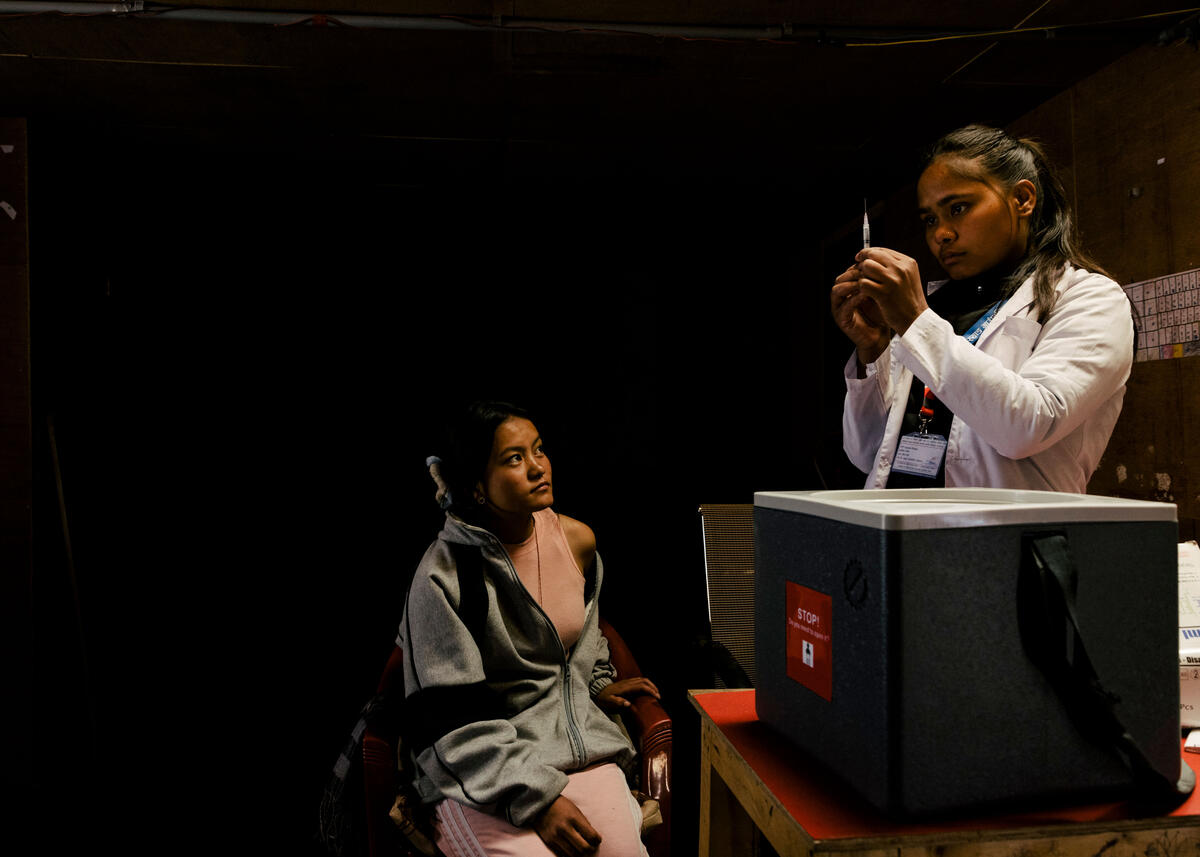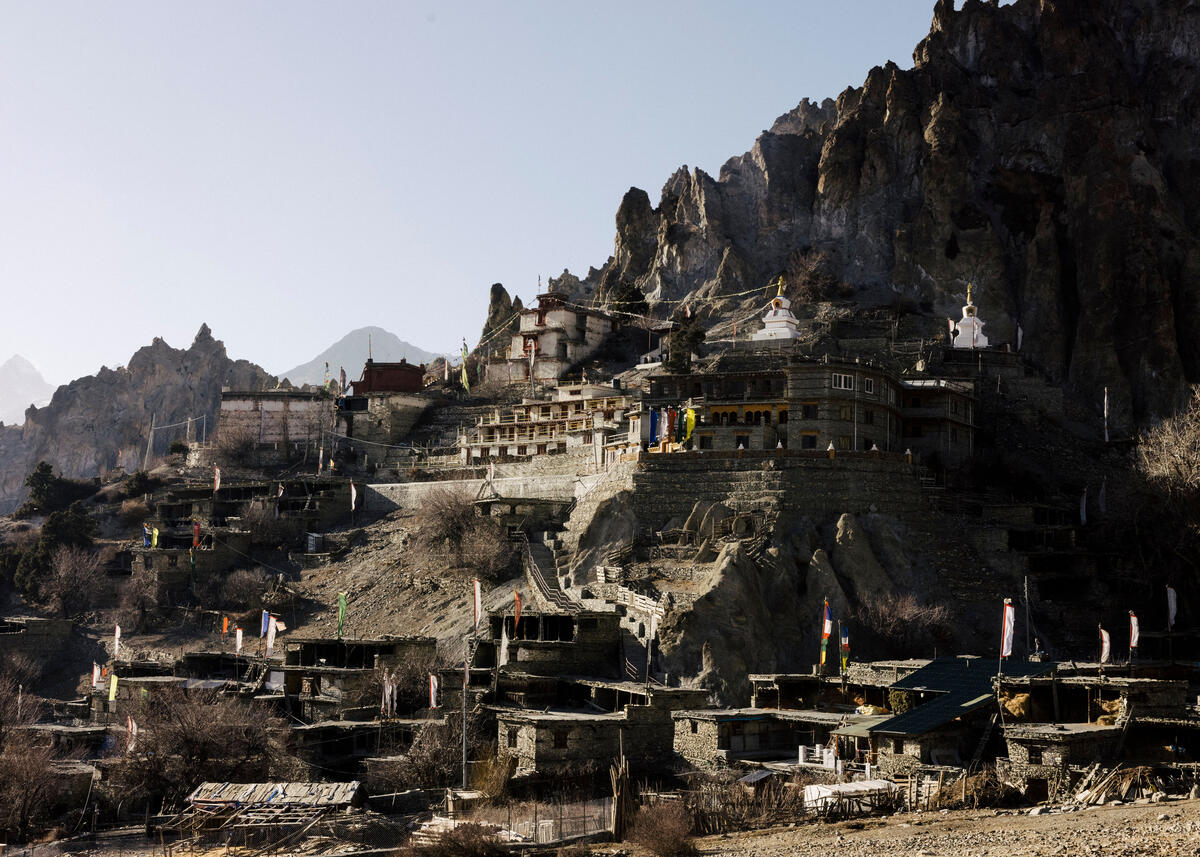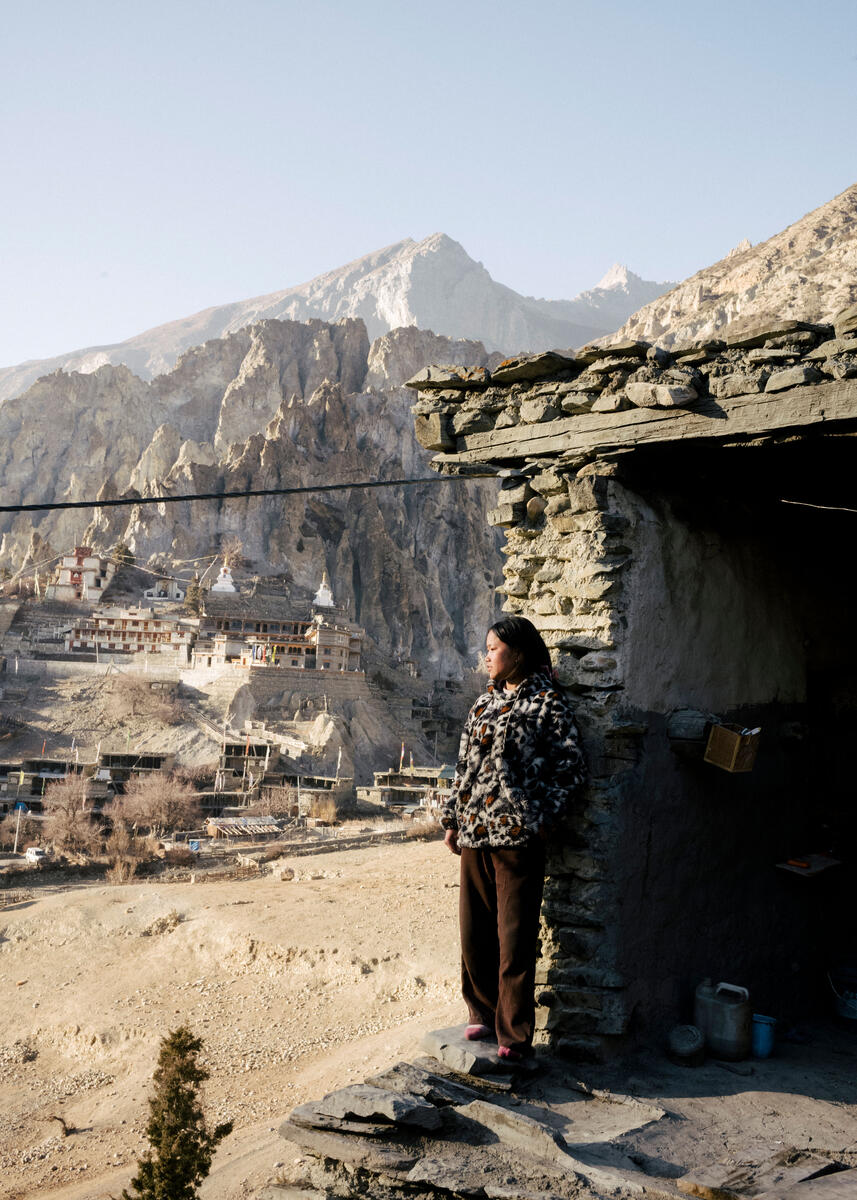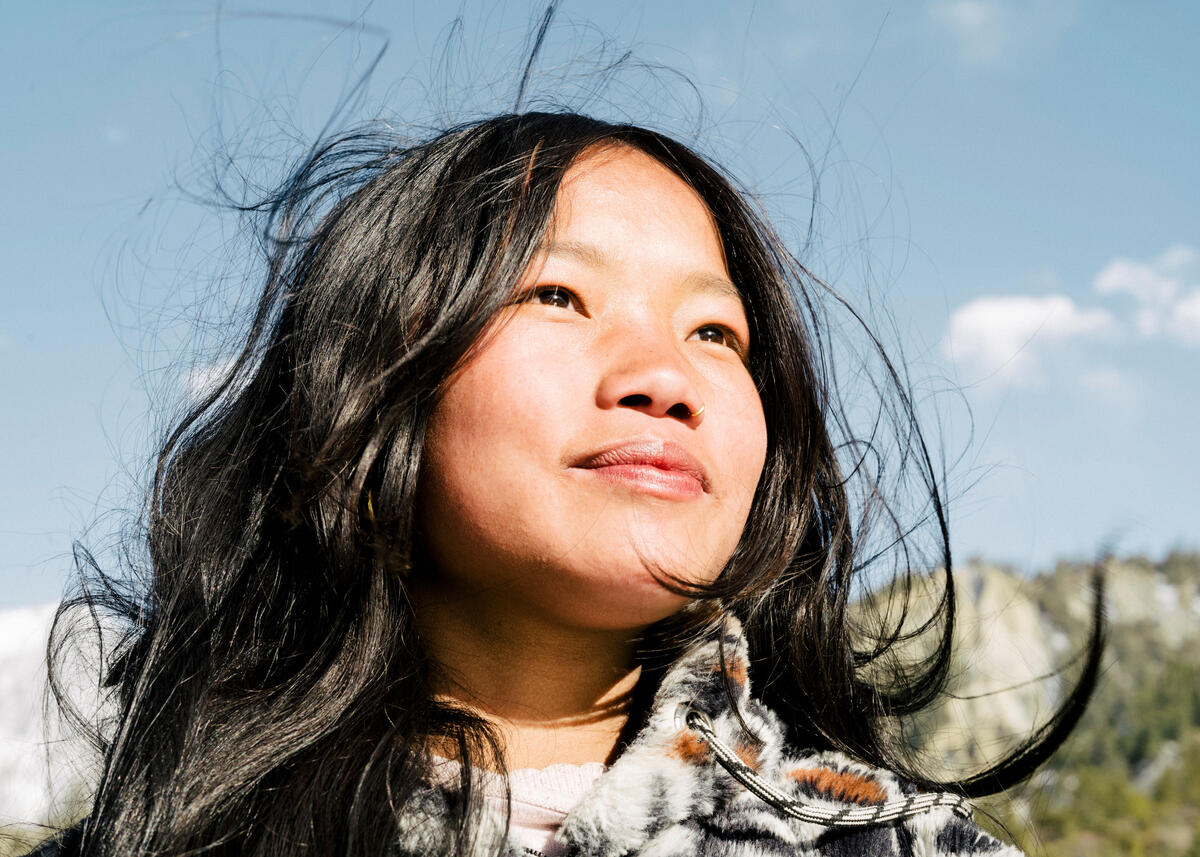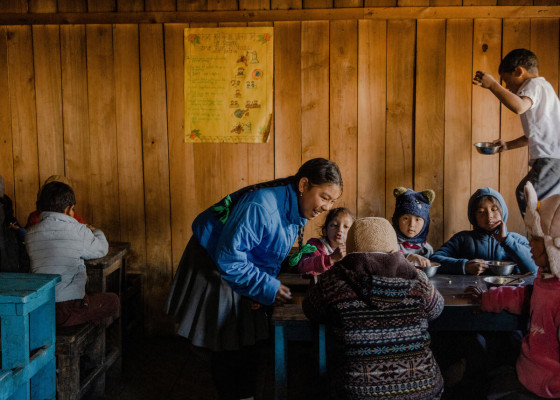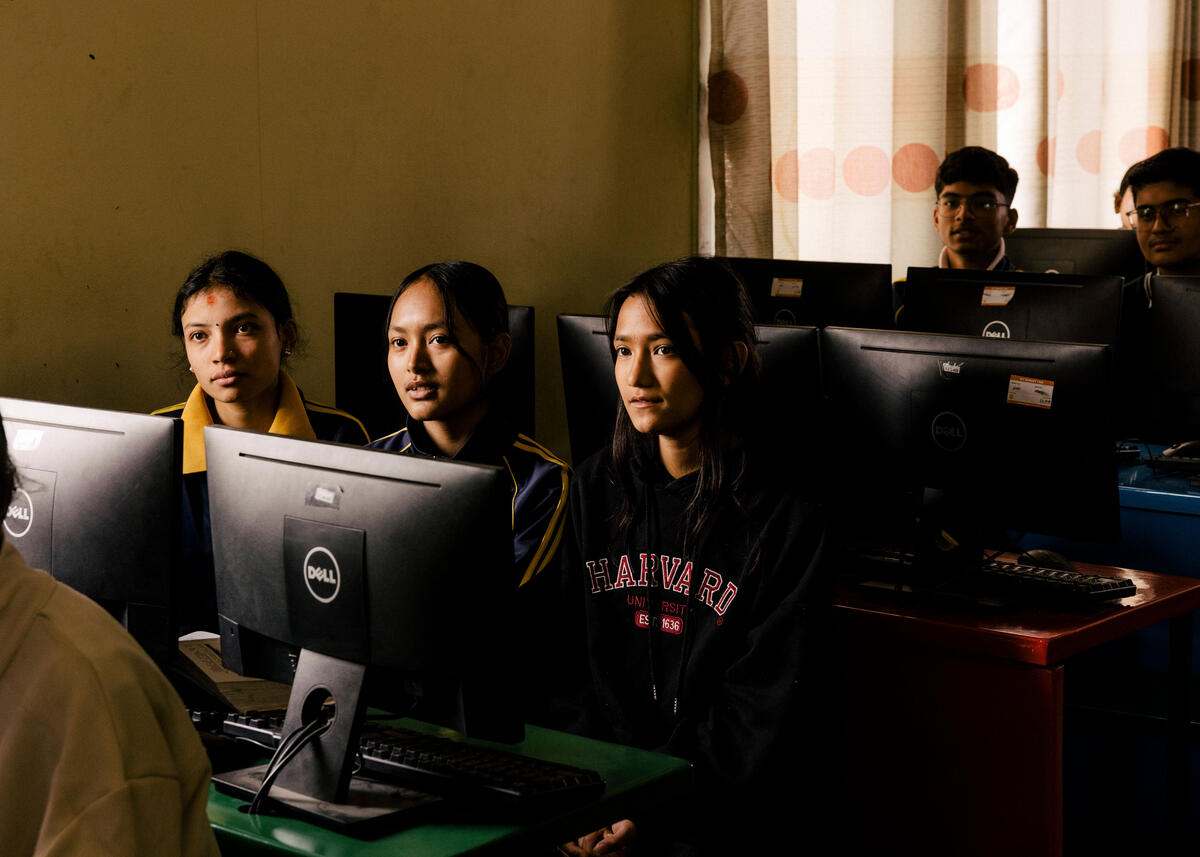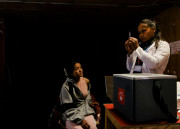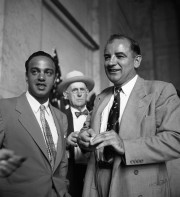Recently, after having entered Iran during the war over land from Turkey, I visited a friend’s house in Tehran. We hugged, sat down, and my eyes immediately fell on a familiar sight. Prominently on her wall hung a framed piece of embroidery. It showed a cat lying in a window frame, with leaves of a tree in the background. A vase with flowers next to an empty chair and a blanket.
I remember that work because long ago, during our other war, my mother had made an exact copy of the same scene. During the long and tense evenings of the eight-year fight between Iran and Iraq, almost every mother I knew had bought this embroidery set, carefully and methodically following its instructions to arrive at the cat and the chair.
It brought me back to a time me and many other Iranians had tried to forget. When you grow up in a country with lots of upheaval, one tends to only look forward, to forget the past. Suddenly, I was back in my childhood days, when every grown-up tried to make us forget there was a war going on.
I was born during winter in the first year of the conflict. My uncle, who had volunteered to go to the front, lovingly nicknamed me Katusha, after the Russian rocket: “Newsha Katusha.”
Suddenly, the loud laugh of a friend brings me back to the present.
Some days have passed since the 12 days of war with Israel, where bombings became normal, but bombs never did.
"Bombings became normal, but bombs never did."
-
People are slowly returning to Tehran, a city around this time normally bubbling with the expectation and energy of summer. Now there is nothing of that excitement. Everyone tries to pick up their normal lives, but we all feel as if we’ve been physically beaten, as if someone violated us. Sure, we try to look normal, but no one really is.
Those who left during the bombardments had closed the doors of their homes, without knowing if they’d ever be back. And as they squeezed their cars with thousands of others along the three narrow mountain passes towards the Caspian Sea, Tehran, that ugly city, became a diamond in their minds.
Their forced departure turned the usual trip to the lush and green shores of the Caspian Sea into an exile. As the cityscape disappeared in their rearview mirrors, suddenly they again fell in love with their smoggy city, missing their small apartments where they had tried to design their own little escape from the outside world.
Back in Tehran, in order to project security that we didn’t have, the state has put up checkpoints across the city, looking for spies. I don’t know how they will find them just by pointing flashlights in our faces. Ice cream shops are busy, birds are singing, almost louder than before, or is it that the usual droning of traffic sounds hovering above the city is much less? Cats are sleeping in the alleyways, seeking out the tiny specks of shadow under the summer sun.
The city is filled with portraits of those killed by Israel, generals, scientists, but also many ordinary people. There are now over a thousand dead.
Anyone I talk to says they can neither sleep nor stay awake. When they fall asleep, they mostly see nightmares, and when they are awake, any sound they hear is like a bomb.
Today, journalists and photographers were invited to report on the bombed-out building of Iran’s State television. I hadn’t watched their channels for years.
The Israelis had decided to target one of the few beautiful buildings on the State TV compound, a black glass building designed before the revolution, but built afterwards. A black cube covered in black glass. Now there were bits of glass everywhere. Three or four people had died, no one seemed to know for sure. Parts of the curtains were hanging in front of what remained of the window frames, having survived but now useless. Whole sections of the building had caught fire and had been burned out. Rows of desktop computers stood bare, covered by desks that had now melted.
While wandering through the remains of the TV building, I was transported back to my childhood, when around 5 PM all kids would be placed in front of the TV, my mom preparing plates of fresh food, watching Japanese and Soviet cartoons. Then I loved TV for its cartoons, now I dislike it for the propaganda it spews.
We would watch a lot of TV during the Iran-Iraq War, as schools were closed and we were taught through lessons aired on TV. I was eight years old. Now, at 44, I’m standing where my childhood started, and it’s blasted into a thousand little glass pieces.
"When you grow up in a country with lots of upheaval, one tends to only look forward, to forget the past."
-
If you look back at our photo albums of that time, you’d see us, the children, smiling with opulent birthday cakes in front of us, our mothers with their hair done up, looking glamorous. I’m amazed at how they managed to shield us from all the pain and hardship and fear. When I see parents now discussing events in front of their kids, I wonder how they will remember this time.
Before the war, I was sad I didn’t have any kids, but now, seeing this new reality, I am happy that I don’t have to put anyone through this. My entire generation hates balloons, as they might pop, don’t like year-end fireworks, and we all had crooked teeth because of the stress. We would never laugh out of shame for our braces.
In 1985, in the absence of my father, who was a businessman, my mother decided to get her driving licence. Her brother had died in a car accident, and she herself had met my father when he hit her with his car (she spent two years in the hospital). Getting her license was a big victory over her fears. It also made her independent.
She used her car — a grey Toyota — for all family errands while my father was off on trips. With three kids, there was a lot of coming and going: swimming lessons, picking up from school, going to cooking class. She made herself busy during wartime. I remember thinking that I have such a cool mom. She drove quite fast.
One day, in the final year of the Iran-Iraq war, she took the three of us shopping. She parked in our usual shopping street filled with butchers, fruit sellers, and home appliance stores. The engine was running, my older sister (9) and younger brother (4), and me (5) were in the back seat. It seemed like a normal day.
Suddenly, there was a terrible explosion, I think one street block further. An Iraqi Scud missile had hit, indiscriminately, as they did not have the technology to pinpoint strikes. Next, I remember my mother running out of the car, leaving us behind. It was a terrible moment. We just sat there in shock, waiting for her to come back. The engine was running, people were screaming, and we sat in the Toyota. Not much later, she returned, stepped on the gas, and drove us home. She never touched the car again in her life.
"I want history to stop repeating itself. "
-
Now, years later, I realize her life changed after that day. She already disliked life under the Islamic Republic, but now she started withdrawing to her house and her kitchen. Sometimes I think she’d rather be a part of the embroidery scene. As if she’d like to sit in the empty chair, next to the flowers and the cat, under the blanket. Away from it all in a dream world.
For those still in reality, finding certainty in uncertainty is our main goal. Rumors whirl, theories abound, and everyone is an expert, trying to puzzle together our future. We rarely look back at the past, but as I do now, I want history to stop repeating itself.
On my way home after the gathering at my friend’s house, I drive through a deserted city. Everyone is home, waiting for what might come. My headlights light up the winding alleyways. Suddenly, I see a cat and a fox, playing with each other, running and jumping, a rare sight to see. It reminds me that anything is possible.


